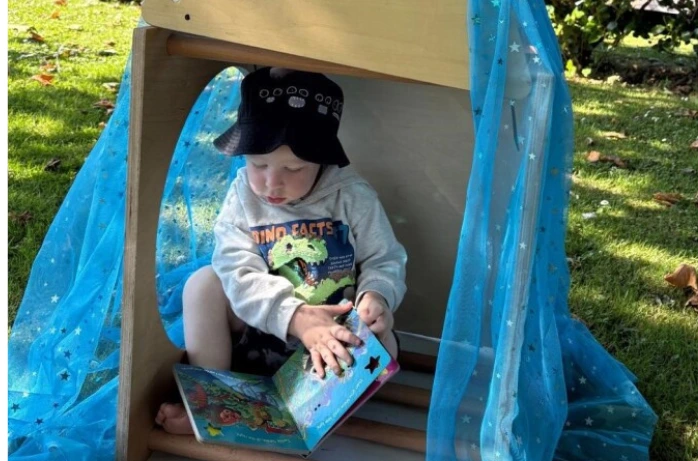You have accessed a restricted section of the website. Please enter your username and password to continue.

The resource for Educators/Nannies supports tamariki to visually recognise how they are feeling and what they might do in different instances to self-regulate. We’re also providing Educators/Nannies with a keyring of cards with a variety of child-centred breathing techniques that tamariki and adults can do together. Mindful breathing exercises help children and adults to focus their thoughts on breathing to promote a state of relaxation.
Here’s some ideas to help tamariki become active contributors to support their self-management and regulation:
Infants
Provide calm and unhurried care routines during times such as nappy change and feeding; engage pēpi using a soft soothing voice; recognise signs of discomfort or distress and respond in a nurturing, soothing way; ensure arriving and leaving routines are personalised, pleasant and unhurried; have an uncluttered space for pēpi to feel safe to explore; play soothing and soft classical or cultural music or read a short story before sleep times – as a sensory cue to help with self-regulation.
Toddlers
Assist toddlers with making choices; establish a daily routine to assist toddlers with self-management – this should still be flexible enough to respect spontaneous play and outings; set up space indoors and outdoors for quiet times and use mats or cushions to define these areas – eg, cushions with books set up outdoors under a shady tree; puzzles set up on a mat against a wall indoors away from a thoroughfare; mat set up with a treasure basket for heuristic play. Ensure boundaries are fair and consistent – eg, we sit to eat our kai, before our nap we choose a quiet activity or read a book together; at the end of the day we all help to put toys away.
Young Children
Assist young children to know how to enter and exit play with others (eg, help them verbalise when they wish to have some quiet time after playing with others); set up a small tent or home-made fort indoors/outdoors with cushions, books or treasure baskets inside; ensure there are sufficient resources for young children that are easily accessible to enable choice and social interaction; include young children in the set up/tidy up of the play space; assist young children to find the words to express how they are feeling, eg “I can see you are feeling happy from the smile on your face”.
The goals, strands and learning outcomes from Te Whāriki /Te Ara Whānui for self-management and regulation include: